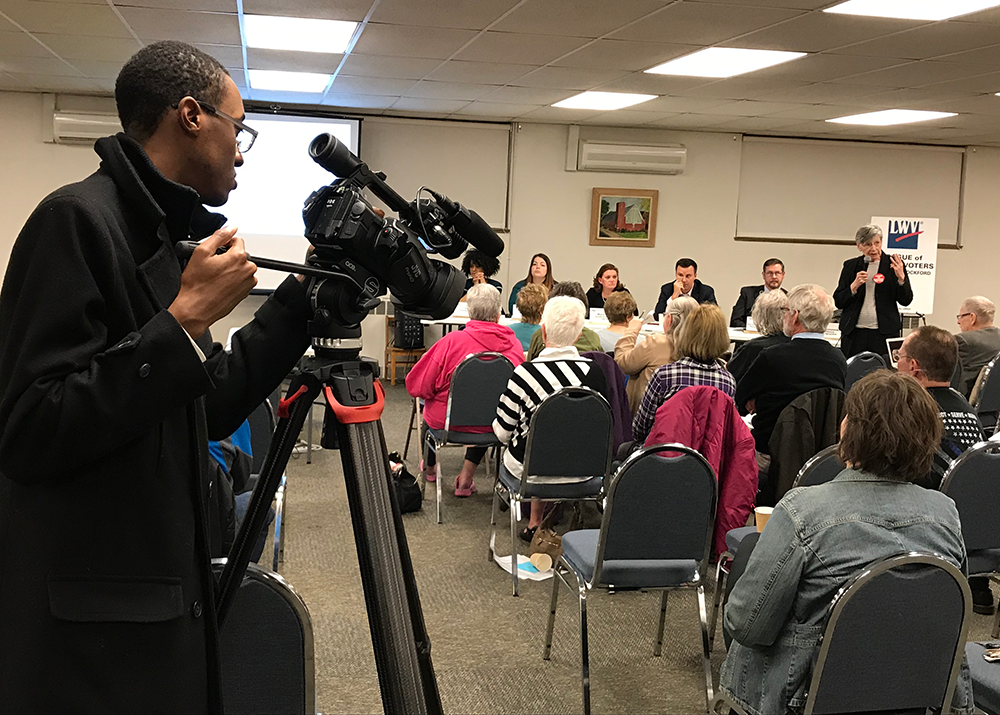
At the League’s candidate meet and greets in March, we partnered with NPR/WNIJ to engage the audience.
The WNIJ journalists asked:
What issue is most important to you in the upcoming elections?
Where do you get your election news and information?
How do you think reporters can cover elections better?
Here’s what the meet and greet attendees told WNIJ/NPR:
- We learned people want reporters to be more aggressive with fact-checking.
- We learned that paywalls make it difficult for people to access accurate and reliable election news.
- We learned people want candidates to be talking about access to affordable healthcare.
- We heard voters want to know about development opportunities in their towns.
- We heard voters voice concerns about corporate money in politics.
- We learned people get their news from multiple sources, but especially local TV, radio, & online outlets. Many find links to news stories on social media platforms, especially Instagram & TikTok. People also find election information on Ballotpedia and the League of Women Voters voting guide.
- We learned people are interested in how the candidates this year will address climate change and renewable energy options.
- We learned people want more accountability in their elected leaders and heard from some residents who believe policy should address term limits.
- We heard from first-time voters, still in high school, who are concerned about drug use among their peers and how candidates will approach drug policy.
- We heard from those same young voters about concerns about how they will pay off college debt even before they begin their degrees.
- We heard about concerns about navigating FAFSA and how many families will qualify for assistance.
- We heard that people feel election news coverage overall is too negative.
- We learned that younger voters don’t always trust the same news outlets their parents follow.
- We learned that people think that gerrymandering is too prevalent in Illinois districts.
- We heard from people who want to know more about how candidates will address issues related to IVF, reproductive rights, and “right to die” legislation.
- We learned people are concerned about increasing voter apathy and threats to American democracy.
- We heard people who think some reporters are reluctant to challenge sources they interview.
- We heard from people who feel there is too much “horse race” or play-by-play election coverage.
- We heard people want to know how the candidates will address immigration and asylum policy as well as support systems available for immigrants.
- We learned people want to ensure that youth are engaged in the electoral process.
- We heard from voters who want candidates to protect the rights of transgender children and their families.
- We heard from voters who think reporters should do a better job outlining what is at stake in election coverage.
- We heard about concerns of voter suppression and access to voting.

